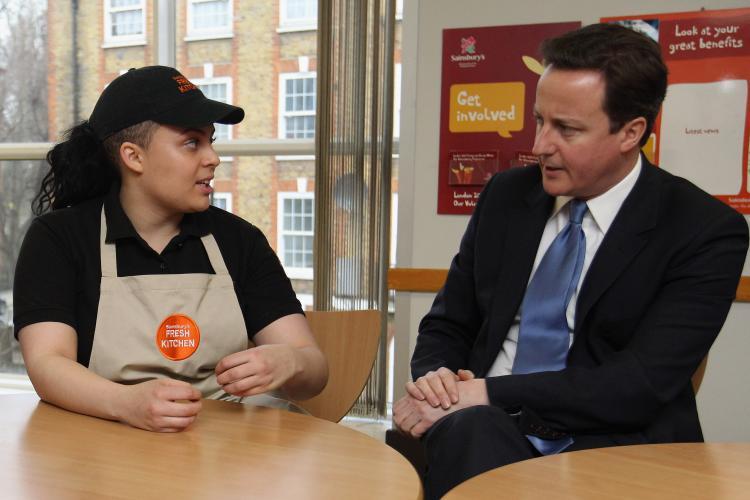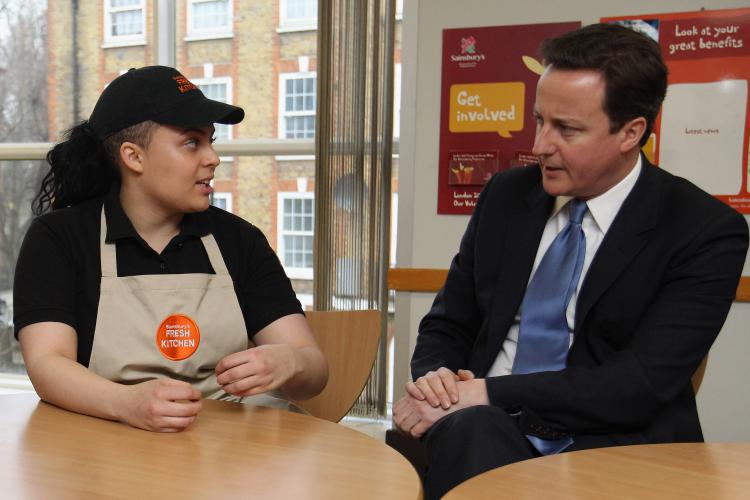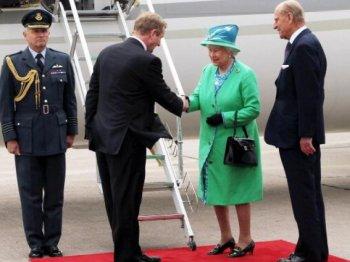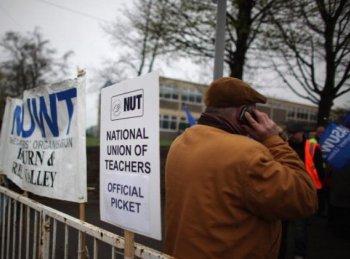Cameron on Mission to Explain ‘Big Society’, Again
Cameron’s “Big Society” has been called a fig-leaf for the cuts, but he sees it as empowering, enabling and opening up public services.
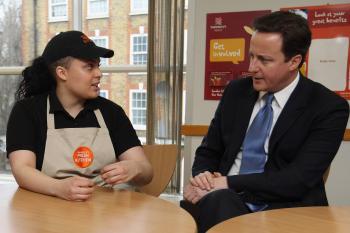
David Cameron (R) speaks with staff member Makeda Sanford (L) during a visit to a branch of Sainsbury's supermarket with Work and Pensions Secretary Iain Duncan Smith on February 17, 2011 in London. Oli Scarff - WPA Pool/Getty Images
|Updated:
